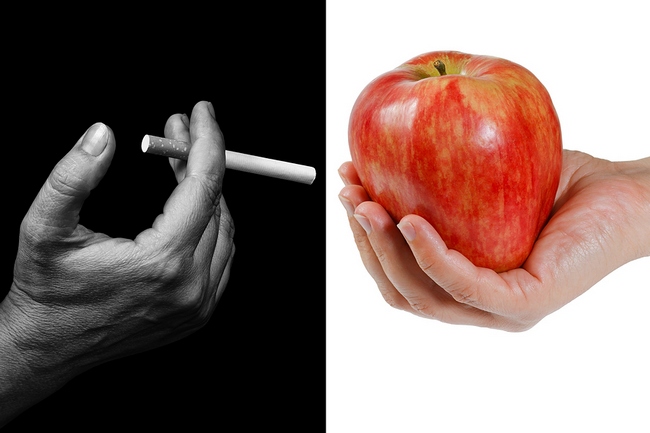- Make It Yourself Lavender Heart-Shaped Bath Bombs!
- 20 Things You Never Knew About “Down There”
- 12 Best Foods For Those Suffering From Arthritis Pain
- 12 Personal Hygiene Mistakes Almost Everyone Makes (Mom Never Told You About #4!)
- 15 Medicinal Plants And Herbs From The Cherokee People
- 12 Mind-Blowing Benefits Of Drinking Coconut Water During Pregnancy
- 12 Outstanding Winter Foods That Won’t Fatten You Up Like A Christmas Turkey
Top 15 Things You Can Do Today To Prevent Cancer From Striking Tomorrow

Photo credit: bigstock.com
2. Don’t Smoke
If you smoke, you’ve heard this a million times, but that doesn’t make it any less true. Smokers have the highest risk of developing numerous types of cancer, including oral cancer, cancer of the esophagus, lung cancer, bowel cancer, stomach cancer, and liver cancer, plus cancer of the cervix, ovaries, nose, sinuses, and even some types of leukemia. This is because most of the chemicals in cigarettes cause damage to our DNA, especially damage to the key genes that protect us from cancer. If you have tried everything but can’t seem to quit, try acupuncture, which has been shown in studies to help lower the urge for nicotine. Hypnotherapy has also helped many people stop smoking. Don’t give up! Many non-smokers will tell you that they tried to quit a dozen times before they were finally able to do so. If they can do it, so can you!
3. Limit Your Salt Intake
Most people think that sodium restriction is only for those with high blood pressure, but this isn’t true. To avoid cancer, you should limit your salt intake to no more than 2,400 mgs each day. This doesn’t mean simply table salt, but the added salt in processed foods, canned goods, and condiments like ketchup. This can be much more difficult than you think when you consider that an average restaurant plate of marinara pasta can have 3,000 mgs of sodium alone! We haven’t even talked about potato chips, bread, simple corn flakes, canned soups, or sauces such as A-1. Japan has one of the highest rates of stomach cancer due to the high consumption of salted foods. Try paying attention to your salt intake for just one or two days — you will probably be shocked by how much you are actually consuming. Look for low sodium options or avoid most added salt entirely by making most of your food from scratch at home so you can have more control over the amount of sodium you put in your body.
Continue to Page 3
































